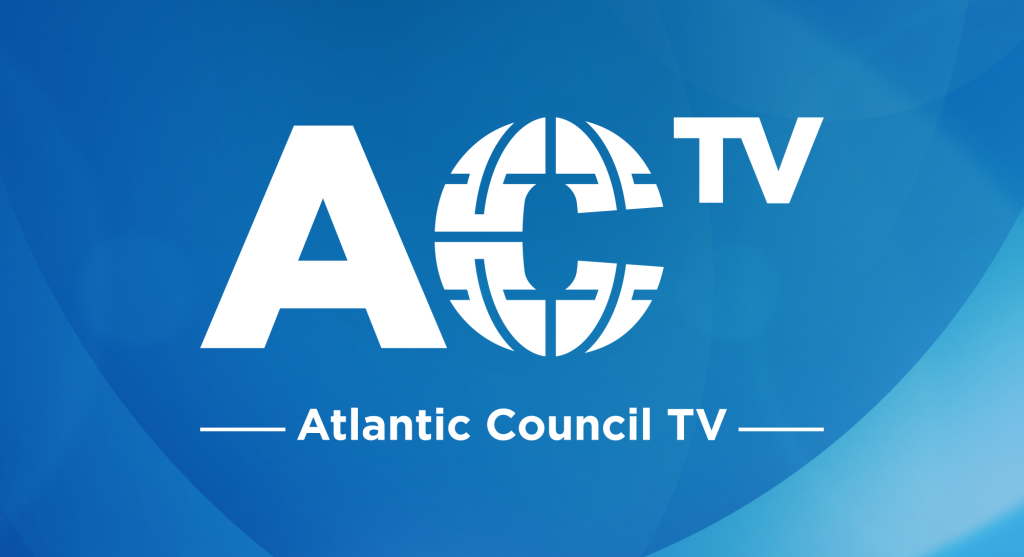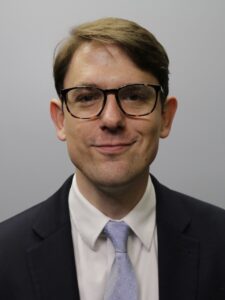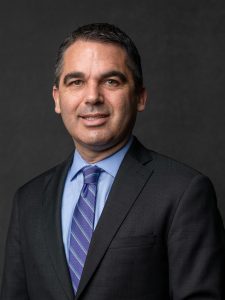Venezuela’s crisis has fueled the largest wave of mass migration in this hemisphere’s recent history, with nearly eight million Venezuelans fleeing in the last decade. With Nicolás Maduro preparing to assume another illegitimate mandate in January following this year’s stolen presidential election, these numbers are expected to increase – an issue that will be top of mind for the incoming Trump Administration. Stronger regional and multilateral cooperation is critical to effectively mitigate the protracted humanitarian crisis and provide stability for host countries.
On November 19, 2024, the Atlantic Council’s Adrienne Arsht Latin America Center hosted an event on enhancing international coordination in response to ongoing mass migration in the Western Hemisphere, caused by the Venezuelan political crisis.
Keynote remarks were provided by former Vice President of Colombia Martia Lucía Ramírez and US Acting Assistant Secretary of the Bureau of Population, Refugees, and Migration Marta Youth.
Atlantic Council Senior Fellow Geoff Ramsey led a discussion on improving regional integration featuring three speakers:
- David Smolansky, Deputy Director, Washington DC, ConVzla Presidential Campaign
- Paula Rossiasco, Senior Development Specialist, World Bank
- Laura Dib, Venezuela Program Director, Washington Office on Latin America
In his opening remarks, Jason Marczak—vice president and senior director at the Adrienne Arsht Latin America Center—warned that “without democratic transition in Venezuela . . . Venezuelans will continue to seek refuge in other parts of the hemisphere” and undertake dangerous routes, such as the Darién Gap.
Marta Lucía Ramírez: Maintain solidarity with Venezuela’s “heroes”
Ramírez called opposition leaders David Smolansky, Maria Corina Machado, and Edmundo González “heroes” because “they are fighting not only for themselves: They are fighting for a country. They are fighting for an entire region.” She emphasized the need for solidarity with the Venezuelan opposition to continue rejecting Nicolás Maduro’s stolen election and support González, who independent observers say won the election by a large margin.
Ramírez called for greater coordination among countries impacted by migration flows, both those receiving large influxes of migrants and transit countries, to develop regional integration mechanisms. As an example of such mechanisms, she pointed to the Temporary Protection Statute for Venezuelan Migrants, which she—along with President Iván Duque Márquez—implemented in 2017, providing temporary protected status for nearly 1.4 million Venezuelan migrants. Without formal protection pathways, she explained, migrants are vulnerable to human trafficking, unjust labor measures, prostitution, and slavery.
Furthermore, Ramírez argued, Venezuelan migration presents an opportunity for the Colombian economy, with 78 percent of migrants of working age. Integration into the labor market, she added, could increase the country’s gross domestic product (GDP) and entrepreneurship activities, creating a more dynamic job market. Meanwhile, she said, there is a need for US leadership to “develop food security and energy security for democratic nations in our hemisphere” to increase investment and job creation as a proactive measure to reduce regional pressures associated with migration.
Marta Youth: Provide vulnerable refugees and migrants with legal status
Youth pointed out that the United States is the “largest single donor of humanitarian assistance” in responding to the Venezuela regional crisis. The United States has provided, according to her estimate, approximately $625 million in 2024 to support refugees and asylum seekers. This brings the total amount of US assistance, she said, to $4.1 billion since 2017.
According to Youth, “one of the most important things a host government can do is provide vulnerable refugees and migrants with legal status.” The United States, she argued, has assisted the region in building the capacity to issue lawful residency and work permits for migrants. Youth pointed to an example in which the United States helped provide biometric printers and temporary status cards for more than 2.5 million Venezuelans living in Colombia.
Improving regional coordination
Geoff Ramsey explained that the integration of migrants is not just a humanitarian concern: It is also an opportunity to unlock economic growth. If governments “invest in policies that can ease access to education, healthcare, and the labor market,” he argued, then the potential for growth and innovation increases.
David Smolansky said that there is already a “new wave” of Venezuelan migration under way, which he said could possibly be the largest outflow of migrants since the crisis began a decade ago. Since the fraudulent election, “at least 180,000 Venezuelans have fled, and that’s a conservative number,” he said. Many of these refugees and asylum-seekers were members of the ConVzla presidential campaign team for Maria Corina Machado, crucial to mobilizing votes. Now, Smolansky pointed out, these members are now heavily persecuted by the Maduro regime.
Additionally, Smolansky said that transnational criminal organizations, like the Tren de Aragua, are exploiting the migrant crisis to expand their illicit activities. Furthermore, he added, the international community cannot allow these organizations to “overshadow the efforts and sacrifice” of Venezuelan migrants who want to work or study and receive legal status.
Laura Dib argued that the human-rights response to the Venezuelan migration crisis has been fragmented, uncoordinated, and insufficiently recognized by the international community. Additionally, Dib underscored that the absence of legal pathways and lack of recognition of international protection rights contributes to the number of unauthorized crossings.
According to Dib, unauthorized crossings by migrants will only incentivize “illicit economies, armed groups, and human traffickers” who will profit from the crisis.
Paula Rossiasco outlined the economic benefits of migrant integration, explaining that “for every peso that Colombia invested in integration, two returned to the country in the way of economic growth, of GDP growth.” At the same time, she said, many countries in the region were unprepared for this influx and thus lack needed frameworks.
Rossiasco argued that migration is seen as a problem instead of an opportunity by the private sector. But, she said, migrant populations present new demand for goods and services for the private sector. Thus, government coordination with the private sector would be “a motor for growth and opportunities for everyone in the country,” she said.
—Brennan Rhodes is a young global professional in the Atlantic Council’s Adrienne Arsht Latin America Center
Keynote Remarks
Marta Lucía Ramírez
Former Vice President
Republic of Colombia
Marta Youth
Acting Assistant Secretary, Bureau of Population, Refugees, and Migration
US Department of State
Speakers
Paula Rossiasco
Senior Social Development Specialist
The World Bank
David Smolansky
Deputy Director, Washington DC
ConVzla Presidential Campaign
Laura Dib
Venezuela Program Director
Washington Office on Latin America
In conversation with
Opening Remarks
Stay connected
Presented by

The Adrienne Arsht Latin America Center broadens understanding of regional transformations and delivers constructive, results-oriented solutions to inform how the public and private sectors can advance hemispheric prosperity.
Atlantic Council TV

Watch this event and more content on ACTV
Follow the conversations shaping our world. Available on all major platforms.


Follow the conversation on X, formerly known as Twitter, with @ACLatAm and @AtlanticCouncil using #ACVenezuela